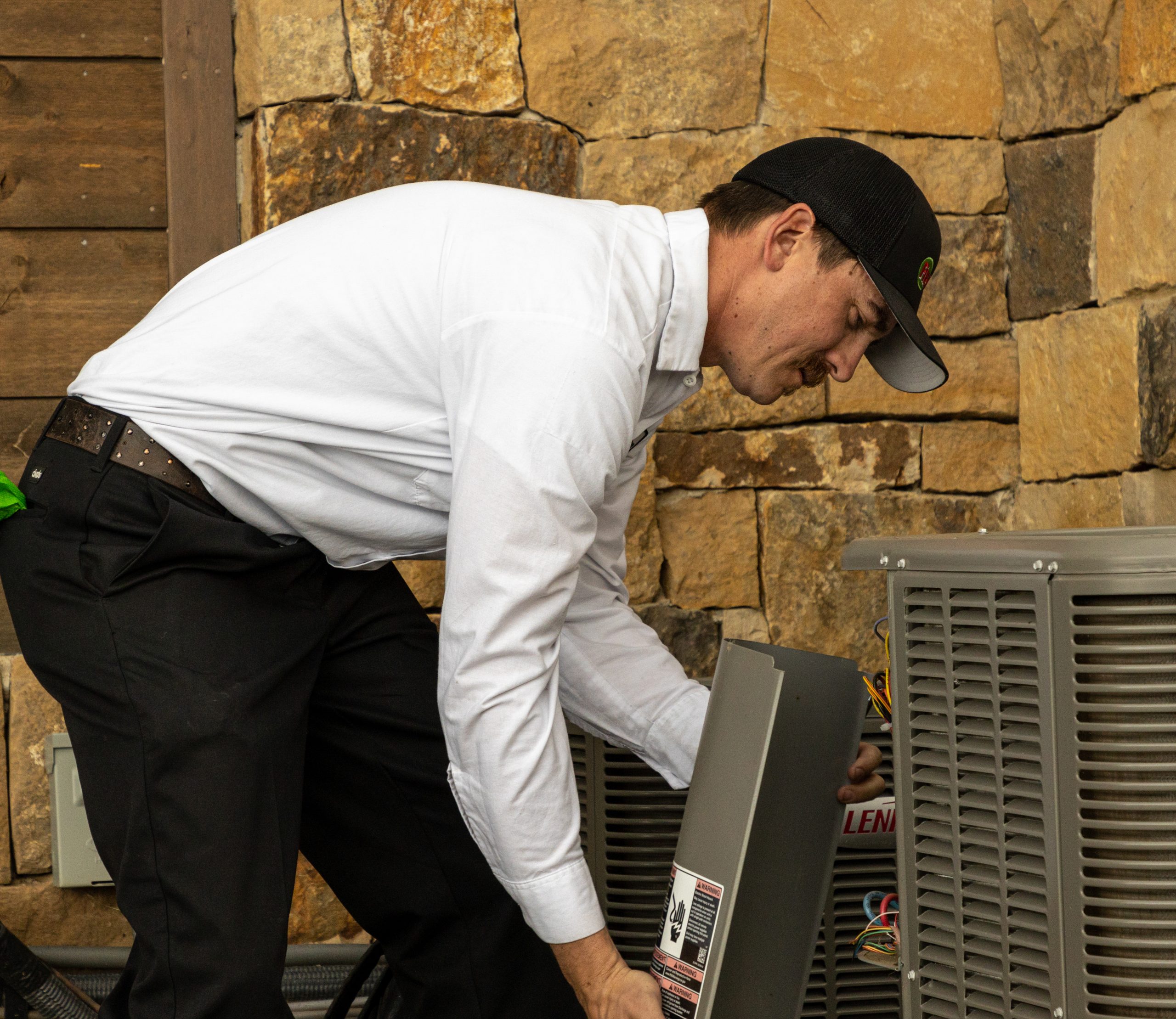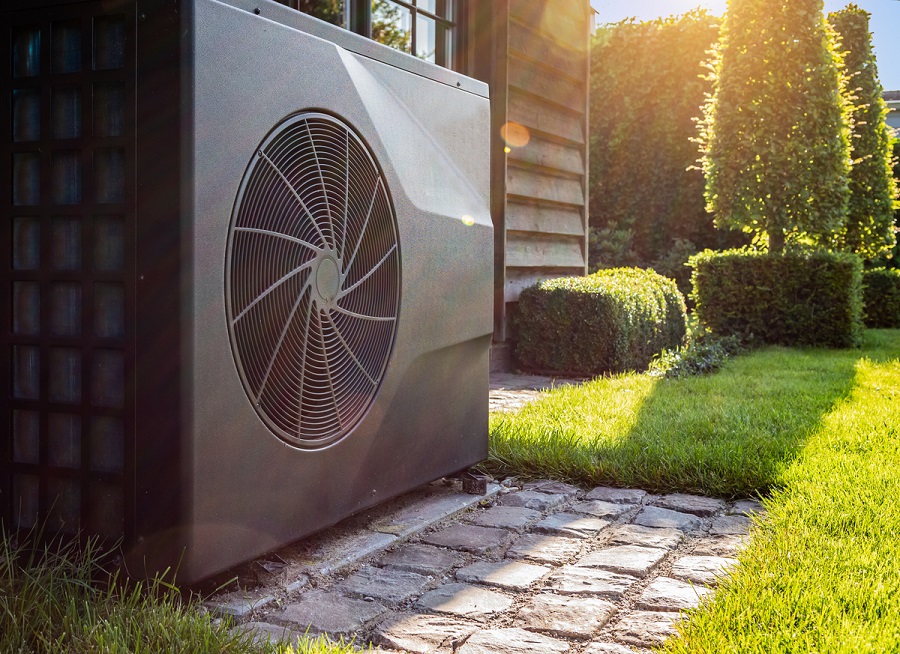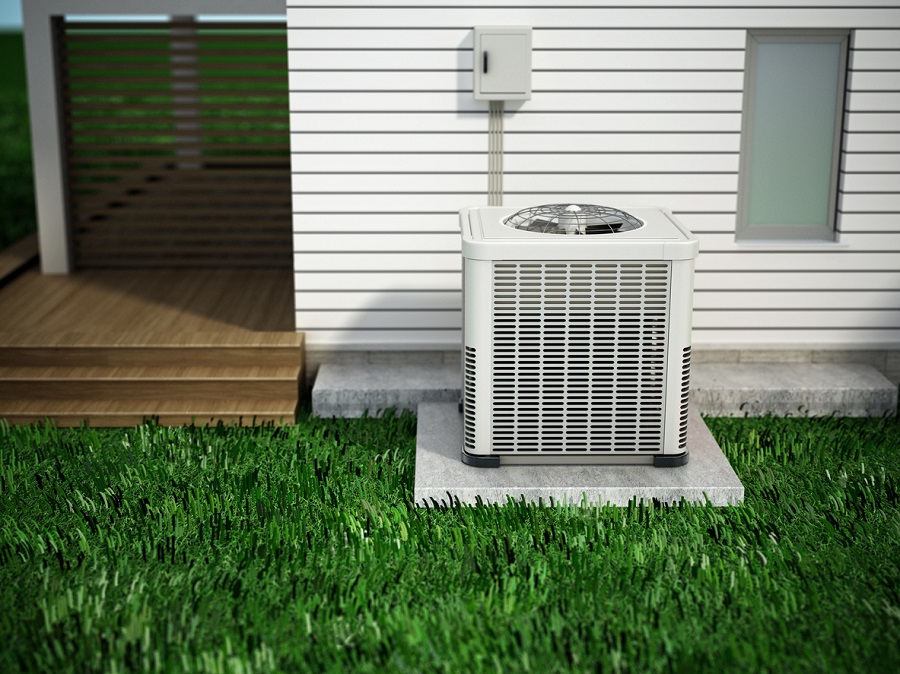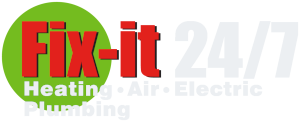Heat Pump vs Furnace – The Main Differences in 2022
Both furnaces and heat pumps provide warm indoor air, but which is right for your home? Today we will look at their differences to determine the best fit for you.
What is the difference between a heat pump and a furnace?
A gas furnace generates heat by burning combustible fuel, such as gas or propane. The heat is then passed over a heat exchanger, raising the temperature. Air is then blown over the heat exchanger, warming it before it is distributed. A heat pump does not create heat. Instead, it redistributes it from the air or ground and uses refrigerant and an outdoor compressor to transfer heat.
What is a Furnace?
A furnace comprises a system that takes the air cooler than the desired temperature and warms it before distributing it through a duct system. There are four main furnace types: natural gas, electric, propane, and oil. The four types indicate the type of fuel used to start the heating process, which then passes through the heat exchanger to warm the air.
What is a Heat Pump?
A heat pump uses outside air to both cool and heat a home. According to the laws of thermodynamics, heat naturally flows from a high-temperature area to a low-temperature area. A heat pump uses energy to switch that process, pulling heat from a low-temperature area and pumping it into a high-temperature area, so heat is transferred from the ground or air into your home.
Types of heat pumps:
Heat pumps are available in multiple configurations:
Air-Air
An air source or air-air pump extracts heat from outdoor air and transfers it into your home. This is the most common heat pump because it is the easiest to install, takes up little space, and is very affordable. Ductless heat pumps are highly energy efficient compared to other heat pumps and function well in mild climates.
Water Source
A water source heat pump extracts heat energy from water by pumping water from a source directly through the heat pump. This means that you can achieve a constant input temperature than an air source pump and it is much cheaper to install than a ground pump. However, a water source requires a constant flow of water to provide heat and cooling, which can be difficult during winter or cold climates.
Geothermal
A geothermal heat pump extracts heat from the ground and soil and transfers it into your home. The advantage of this method is that ground temperature is always warmer than the air, making a geothermal heat pump more efficient than air source pumps in addition to being more reliable and quieter. However, the primary drawback of geothermal is that the install is very costly, requiring a network of plastic tubing underneath your home to be installed.
Heat Pump Pros and Cons:
Heat pumps have a few benefits and drawbacks, mainly that they are highly efficient, quiet, and safer, but they are much more costly upfront and require heavy maintenance.
Pros
High efficiency
A heat pump uses heat exchange to produce heating and cooling. This process is highly efficient as heat exchange does not require large amounts of energy, so no excess energy is lost, unlike a furnace which can produce a large amount of energy quickly but loses it through ventilation and other sources.
Quiet
Heating pumps operate efficiently and quietly, removing the loud noises that standard heating systems provide. In addition, since the system is split and uses little energy, the noise from the heat pump is almost silent and will not disrupt your home.
Better Safety
Heating pumps are safe to operate as they do not burn fuel to generate heat and use electricity. Furnaces burn fuel to achieve target temperatures which produce toxic carbon monoxide, which is dangerous to the home and the environment.
Lower running costs
Heat pumps are energy efficient, providing lower running costs than traditional heating and cooling methods. They utilize a low amount of energy to provide both heating and cooling to your home and can drastically reduce your energy bills by at least 30-50%.
Cons
High upfront cost
Heat pumps require a hefty investment upfront and have steeper install costs than a furnace. Of course, the tradeoff is that heat pumps function as both air conditioners and heaters, but you will find that the initial cost will be 50% more than installing a traditional furnace.
Difficult to install
Heat pumps are quite large and require a licensed professional to install them. In addition, they comprise multiple components similar to an air conditioner unit. Unless you choose an air-air heat pump, you will also need to configure either a ground pump system or a water pump system, which is restrictive for most homes.
Less effective during cold environments
Heat pumps utilize heat exchange to provide both heating and cooling. With cold weather, the outside air will require the heat pump to work overtime to effectively hit target temperatures, which will drain your energy bill and potentially overwork your system.
Requires more maintenance
Heat pumps require more maintenance than gas furnaces as there are numerous mechanical parts in the system. With multiple fans, compressors, condensers, and an evaporator, many aspects can break down, requiring more frequent maintenance, which can be a hassle, especially during colder months.
Furnace Pros and Cons:
A furnace provides a few benefits to your home, mainly affordability and heat efficiency.
Pros
Very cost-effective/more power
Furnaces are very cost-effective compared to other heating and cooling sources and can heat a home faster than other alternatives. This is because furnaces burn fuels to achieve target temperatures quickly whereas heat pumps rely on the slow heat exchange process.
Low upfront cost
Electric furnaces have a lower upfront cost than a heat pump as fewer moving pieces are involved. In addition, an electric furnace needs to be connected to power to provide both heat and cooling, whereas a heat pump will require both an indoor and outdoor system before it can function.
Low maintenance
Unlike heat pumps, furnaces require lower maintenance as they have fewer moving pieces. Heat pumps have multiple fans, a compressor, a condenser, an expansion valve, and an evaporator that can break down, requiring professional maintenance.
Cons
Shorter service life
Furnaces have a typical lifespan of only 15-20 years without proper maintenance. With maintenance, this number grows to 30-40 years, but the fuel used to heat the furnace will inevitably shorten it’s life expectancy.
Requires gas line
A furnace will require a gas line and ventilation system, which can drastically impact your final cost. The ventilation system and ducts can be quite large and difficult to install.
More expensive long-term
Given the longevity factor, furnaces can be more expensive than a heat pump long term between installation costs and replacement costs. If you choose to forgo a gas line and choose an electric furnace, your energy bills will drastically increase as a result.
Types of Furnaces
There are a few furnace types to choose from:
Natural gas
A natural gas furnace utilizes natural gas to ignite the burner and provide heat. This is a popular method as it is the most efficient furnace type available. The drawback is that natural gas furnaces produce carbon monoxide which can be harmful in large quantities.
Oil
Similar to natural gas, an oil furnace burns oil to produce heat. The process is very similar and oil produces carbon monoxide as well, requiring ventilation setup. Additionally, oil is slightly less efficient than gas furnaces, but the cost of oil is much cheaper than natural gas, around 25% less.
Electric
Electric furnaces utilize electricity to pull air and convert it to the appropriate temperature. The process uses less energy and electric furnaces are easy to install and last 10 years longer than other furnaces. But electricity is much more expensive every month than gas, which can balance out the savings for the initial cost.
Propane
A byproduct of oil and gas production, propane is similar, acting as fuel to be ignited for the burner. This heat is then transferred through a heat exchanger into your home. Propane is a good option if natural gas or electric furnaces are not readily available, but propane carries the same danger of carbon monoxide.
Detailed Differences between Heat Pumps and Furnace
Energy efficiency
A heat pump can transfer more energy than it consumes because it uses heat transfer instead of fuel to provide heating and cooling. In general, a heat pump is more efficient than a furnace.
Air Quality
Both heat pumps and furnaces provide high air quality and can filter out harmful contaminants in the air.
Installation Cost
The overall installation cost of your furnace, heat pump, or dual fuel system depends heavily on your home’s compatibility and current system setup. For instance, some homes may not have access to natural gas, making an air conditioner and furnace installation a more expensive alternative to a heat pump system. Alternatively, homes that are not wired for the supplemental heating associated with a heat pump system may incur additional costs. If you are unsure of which setup is best for your home, consult a professional for their recommendations.
Cold Weather effectiveness
A heat pump uses heat transfer to generate heat, but if the outside temperature routinely falls below freezing, the heat pump will have difficulty heating your home. A gas furnace is much better for cold weather as it uses fuel to provide heat, but a furnace will expend a great deal of energy to accomplish this.
Comfort/Space
A heat pump is more efficient but the air tends to be cooler than a furnace. On the other hand, a furnace can dry out your skin from the heat, whereas a heat pump will create a more humid environment.
Life Span and maintenance
A heat pump has a lifespan of 15 years with proper maintenance, whereas a furnace has a lifespan of 20+ years. Furnaces are also much easier to maintain as there are fewer parts, whereas a heat pump has multiple parts that will require continual inspection and maintenance.
Can a heat pump replace a furnace?
Yes, a heat pump can replace both a furnace and an air conditioner. The only drawback to both is that a heat pump will take longer to provide heating and cooling to your home. This is because both a furnace and air conditioner utilize energy to provide cooling, whereas a heat pump is more passive, which is more efficient but much less powerful.
Calculating which is the best for you
To help you calculate your heating cost, you factor in your furnace size by the BTU or how much heat is required to heat a pound of water. Then you add the heat pump size by ton, then the heat pump HSPF efficiency rating. Then you add in your state to determine the climate, then add in yearly heating hours, which uses data by the US Department of Energy to determine average outdoor temperatures. Finally, we use electric and natural gas prices to determine your final cost, which you can find here.
Overall – which is right for you?
Which is right for your home? The answer to this question will depend on your home’s setup and surrounding environment. If you live in an area with near-freezing temperatures, it is highly recommended that you use a furnace. If your environment is more moderate than a heat pump will provide you with a more efficient heating source.
Hire Fix-it 24/7 for professional heating installation
If you want to install a heat pump or furnace in your home, contact Fix-it 24/7. Our expert technicians are available 24 hours a day, including weekends and holidays, and will alleviate any stress with your heating installation, maintenance, or repair. In addition, we will ensure your unit is installed correctly and help you choose the right model for both comfort and budget.
Follow the links below for more information on our heating services:



